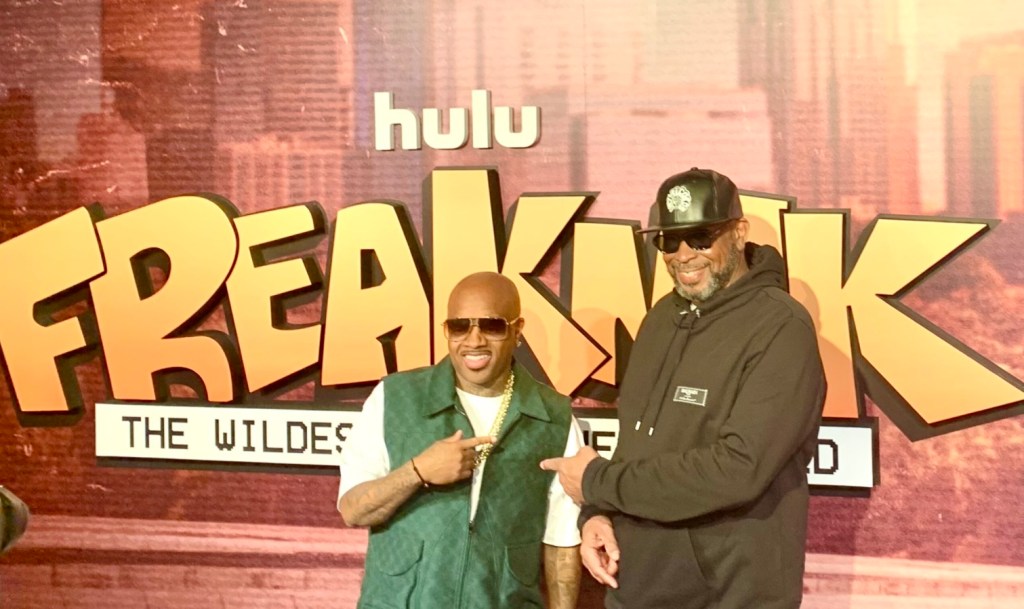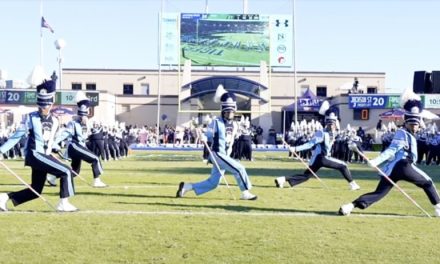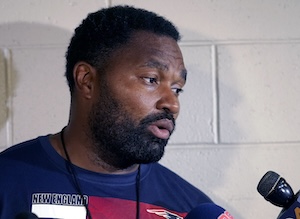By Ericka Alston Buck
Special to the AFRO
In 1983, a small group of Black college students in Atlanta organized a modest cookout for students who couldn’t travel home or abroad during spring break.
The event, named “Freaknik” because of its blend of the word “picnic” and a nod to the Chic song “Le Freak,” marked the humble beginnings of what would become a cultural phenomenon. Over the years, Freaknik evolved from a casual gathering to a massive citywide celebration, attracting over 200,000 attendees in its prime. However, amid its growth came issues of safety, traffic congestion and reported sexual assaults.
Eventually, in 1999, Atlanta police sought to shut the event down. Now, Hulu’s new documentary, “Freaknik: The Wildest Party Never Told,” delves into the rise and fall of this iconic event.
“Freaknik” explores the transformation of a simple picnic into a legendary spring break destination for Black college students across the nation. The documentary, produced by prominent figures in the entertainment industry, including Jermaine Dupri, 21 Savage and Luther “Uncle Luke” Campbell, sheds light on the cultural significance of Freaknik and its impact on Black youth during the 1990s.
The documentary provided a refreshing, entertaining and nostalgic trip down memory lane and adequately captures the excitement and anticipation of yesteryear, as a new generation of African-American scholars planned road trips to Atlanta, eager to partake in what seemed like an otherworldly experience.
Amidst the excitement surrounding the release of “Freaknik: The Wildest Party Never Told,” social media has been abuzz with chatter from individuals, many now in their 50s, who may harbor a tinge of apprehension. For some, the thought of rediscovered footage from their youthful escapades during Freaknik brings a mix of nostalgia and trepidation. As they’ve evolved into professionals, parents and even grandparents, there’s a humorous realization that the activities captured on film may not align with their present-day identities.
Indeed, many posts across social media have been lighthearted and comical, with individuals sharing anecdotes and memories from their Freaknik experiences. The prospect of unearthed footage showcasing their younger, carefree selves engaging in revelry has sparked a wave of laughter and reminiscence among those who attended.
Dr. Lamarr Darnell Shields, a prominent scholar and activist in the Baltimore region, who shared his firsthand experiences of attending Freaknik.
“I had the incredible opportunity to attend Freaknik in Atlanta from 1990 to 1993, and it remains one of the most unforgettable experiences of my life,” he said.
His vivid recollections of mingling with celebrities like Tupac and TLC underscore the cultural significance of Freaknik as a melting pot of diversity and musical expression.
“The city was buzzing with vibrant energy, and I made sure to capture countless moments through photography, documenting our unforgettable journey. It was a time of boundless joy and empowerment, particularly for young Black individuals like myself, immersed in the richness of life,” said Shields. “Freaknik was a melting pot of diversity–devoid of conflicts–where Black individuals from various backgrounds came together to represent their schools, fraternities, sororities, cities, and majors. The music was electrifying, encapsulating the essence of the 90s, the Golden Era of hip hop.”
Though Shields enjoyed his experience, it was not free of obstacles.
“Our return trip hit a snag when our car broke down in Montgomery, Ala., with no funds to spare. In a spur-of-the-moment decision, my friends and I convinced the hotel staff that we were a hip-hop group called ‘2 Hard 4 Yah,’ assuring them that our manager would wire the money the next business day. Ultimately, we managed to resolve the situation, pay for the accommodations and make our way back to Grambling.”
Dr. Karsonya “Kaye” Wise Whitehead, executive director of the Karson Institute for Race, Peace and Social Justice, provided insights into the communal spirit of Freaknik. She emphasized its role as a family reunion for Black college students, where bonds were forged through music, dance and shared experiences.
“Of course I went to Freaknik,” said Whitehead. “Everybody went to Freaknik!”
“ I had just pledged Delta Sigma Theta and I was young, gifted and Black so I had to go. It was an entire vibe– a family reunion with family that you only recognized on a cellular level. It was Black, Black, Black.”
“First, it was held in Blackopolis (Atlanta), second it was only for HBCU students, and third it was our version of the Florida spring break that White college kids did, but we just did it better,” Whitehead told the AFRO.
The documentary effectively captures the essence of Freaknik, juxtaposing its vibrant celebrations with the challenges it faced, including concerns about safety and the eventual crackdown by authorities.
Through archival footage, interviews with attendees and commentary from cultural critics, “Freaknik” offers a comprehensive examination of this pivotal moment in Black cultural history– including highlighting some of the unconventional ways that some used to travel.
Shields says he will forever remember attending Freaknik with a cousin and “driving from Southern University in a U-Haul Truck with a couch in the back with tons of girls in it.”
“We thought it was so cool– not realizing the safety concerns,” he said.
For Whitehead, the cultural experience will never be forgotten.
“It was the music, the dancing, the food, the call and response– walking through the crowd, hugging folks you knew and ones you just met, the parties happening everywhere, driving in your car slow with the windows down and then jumping out when your song came on to dance in the street,” she said. “It was life before cell phones. Meet ups were intentional and connections had to happen quickly. If you were in a fraternity or sorority, you had an automatic family – you were already plugged in. Freaknik was the place to be—to build community, to be with your folk, to party like you had no cares in the world–until it wasn’t.”
Overall, “Freaknik: The Wildest Party Never Told” is a compelling exploration of a cultural phenomenon that defined a generation. It celebrates the joy, camaraderie, and creativity of Freaknik while acknowledging the complexities and controversies surrounding its legacy. For those who lived through the era or are curious about this iconic event, the documentary is a must-watch, offering both entertainment and valuable insights into the cultural dynamics of the time.











